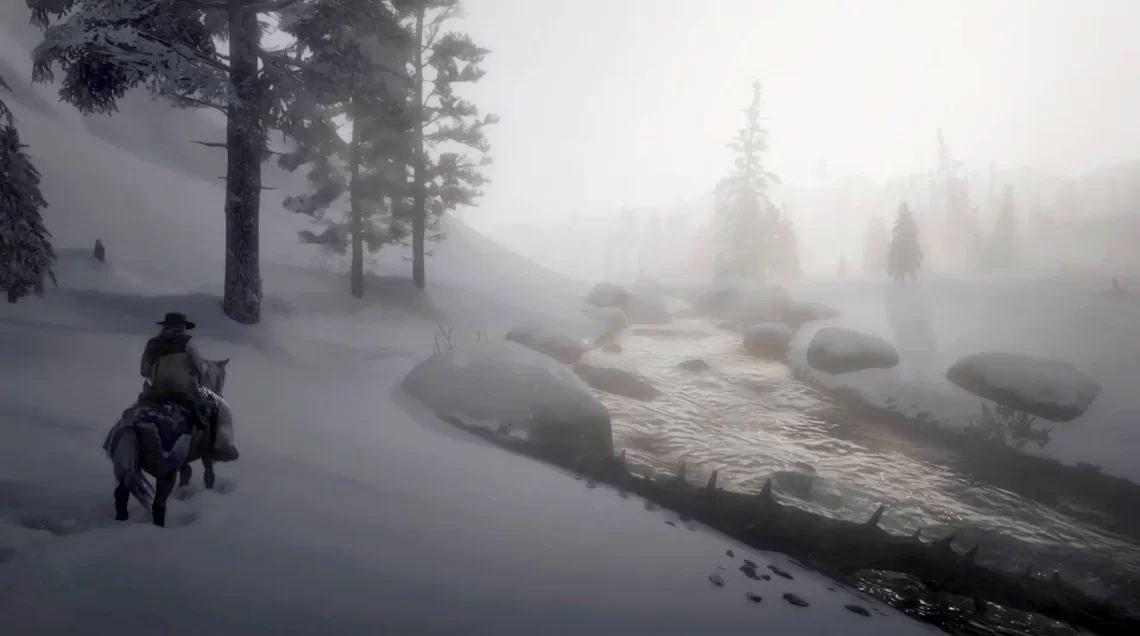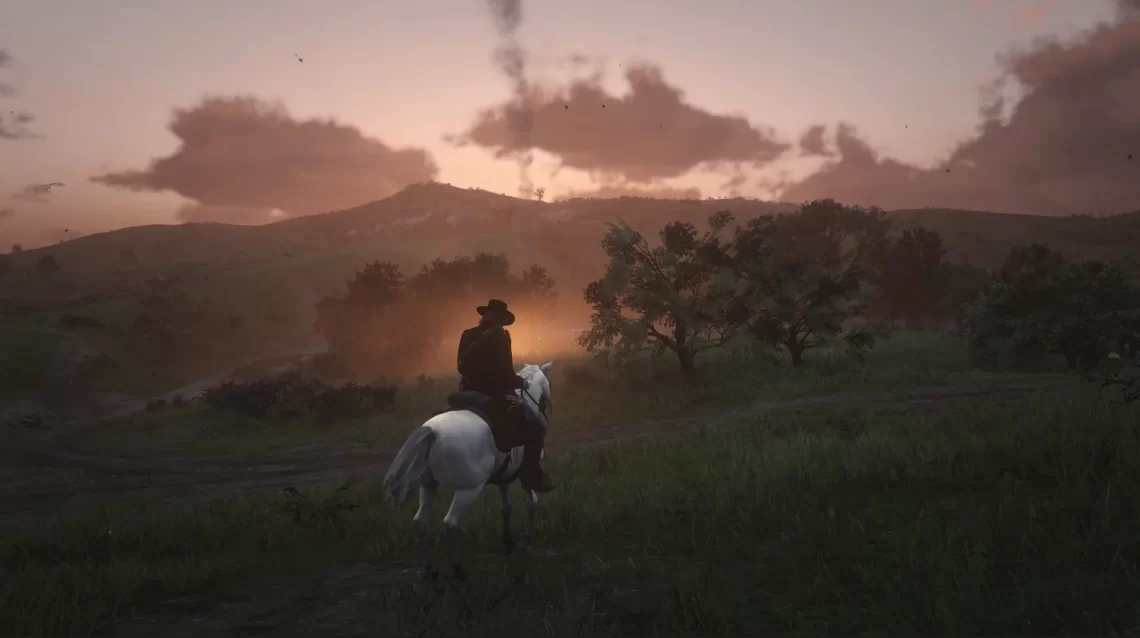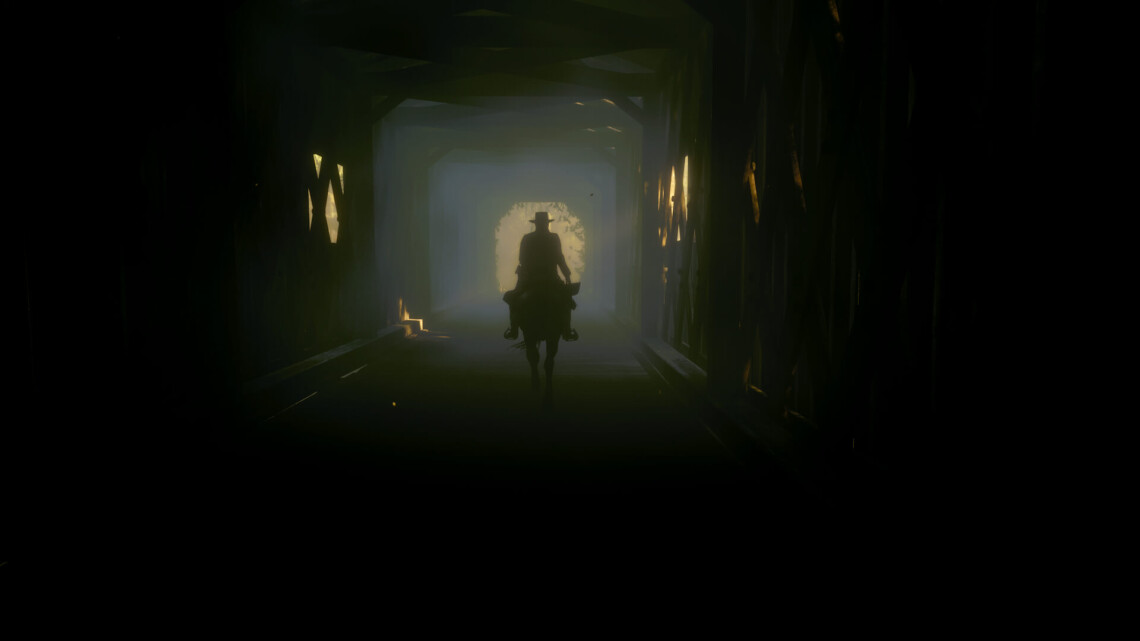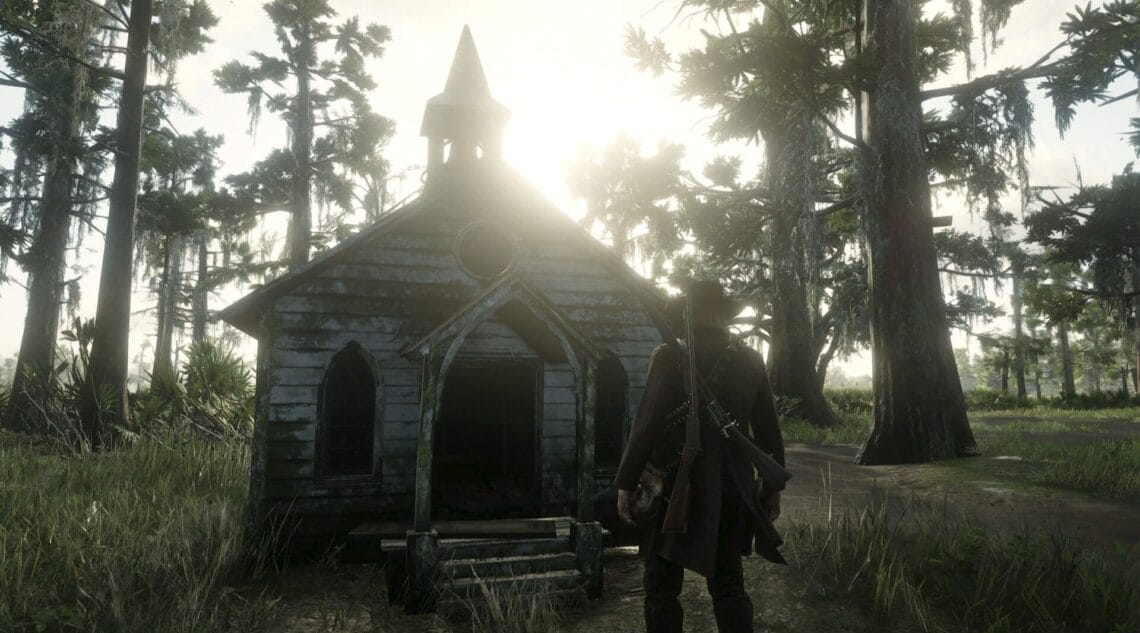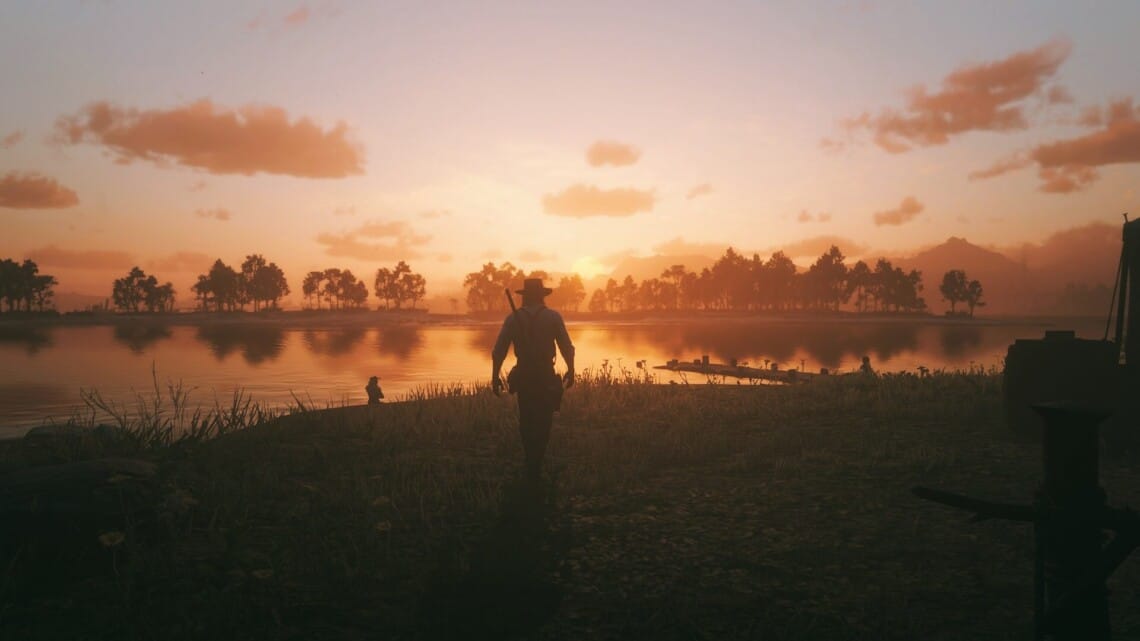Butcher’s Crossing is an 1960 novel by John Williams about a young man named (hilariously) William Andrews, who leaves Harvard in the 1870s to go West and experience the parts of the country untouched by European colonizers. In part, he’s inspired to do so by Ralph Waldo Emerson, the most prominent figure of the Transcendentalist movement. Another leader in the literary movement, Henry David Thoreau, is part of the basis for the character Evelyn Miller.
The traces of Cormac McCarthy's Blood Meridian that appear in RDR2 are subtler than Rockstar's usual bold and underlined references. The novel's impact on Red Dead Redemption was second only to that of Sam Peckinpah's The Wild Bunch. In contrast, Blood Meridian makes itself felt throughout RDR2 in the horrific violence, the bleakness, and the bitter irony, but most of the similarities aren’t specific enough to claim them as absolute allusions. A few are certain:
If any aspect of RDR2 is perfect, it's the light. Rich and golden, the sunsets and dawns immerse the player in the game's themes — nostalgia for a lost world; wonder at nature — drawing on the senses to create poignant emotion. That light, itself, is an allusion to a 19th-century artist who in turn inspired one of the game's most charming minor NPCs.
Learn the story behind RDR2's Strange Statues, plus much more.
As should be apparent by now, RDR2’s use of literature ranges from deep and extensive to brief and glancing. Sometimes, the writers allude to a work broadly rather than dealing with its themes.
Frankenstein, by Mary Wollstonecraft Shelley, is the first science fiction novel. Famously, it was conceived as part of a contest between Shelley, her husband Percy, and their friends Lord Byron and John William Polidori. The group was staying in Geneva, where Byron rented a house called Villa Diodati. They were “delighted to learn that Milton had once stayed there, an astonishingly good omen for this group who by now saw themselves as fallen angels, like Milton’s Satan: rebellious and misunderstood” (Gordon 168).
During “A Fine Night of Debauchery,” Arthur Morgan grumbles to Josiah Trelawny, “This ain't Hamlet.” This is the writers begging us to notice that this is Hamlet. Happy to oblige. After the death of his father, Hamlet's uncle Claudius marries Hamlet's mother, Gertrude, and becomes king. One of the senses of discomfort this creates — the rottenness in the state of Denmark — is that Hamlet is of age. Under the rules of primogeniture, he should be king. Arthur is similarly infantilized.
Finishing our journey through the intertwined Eden and Hell of RDR2.
The relationship between RDR2 and the Bible is an odd one. The game seems thoroughly secular on the surface, but its ideas about sin and redemption are not unchristian — perhaps because it relies so much on Paradise Lost to shape it. But the use of that text doesn't entirely account for the use of Biblical material in the game, which indicates a broad familiarity with that body of work.
The remaining allusions to King Arthur in RDR2 that didn’t fit into essays elsewhere: what's up with Kieran's beheading, why Arthur sees a deer in his honor visions, Pleasance, and much more.
